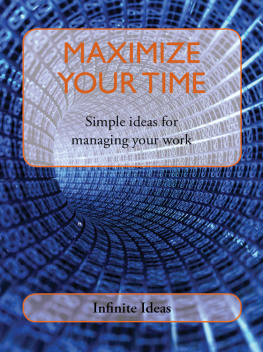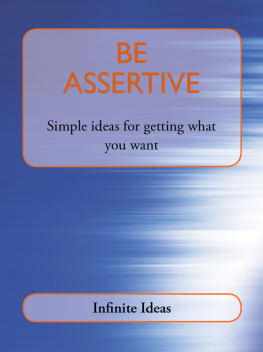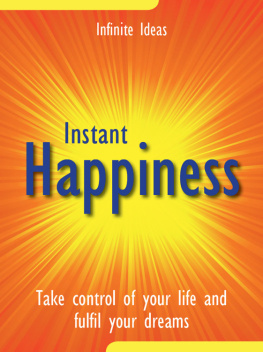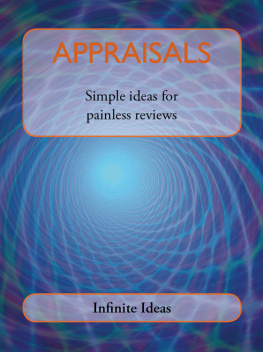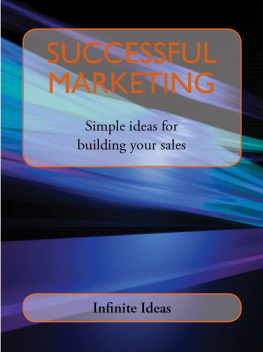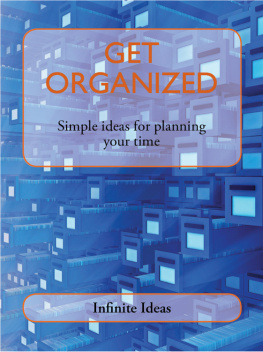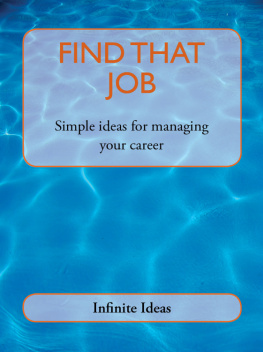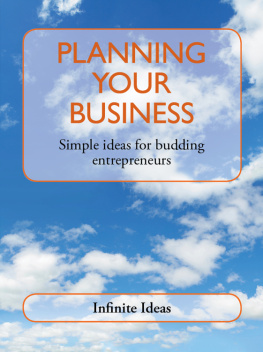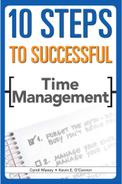Maximize your time
Simple ideas for managing your work
Infinite Ideas with Ronald Bracey

Welcome!
About Maximize your time
Can you learn to maximize the use of your time by reading this short e-book? The answer is a resounding Yes.
The only bit of waffle in this book
This book is for people with neither the time nor patience to trawl through acres of jargon. If you want to avoid management-speak and page-filling waffle, this book is definitely for you.
Maximize Your Time! has been written in the belief that you can learn all you really need to know quickly and without fuss. The aim is to provide essential, practical advice that you can use straight away. This book is a tool to help you change your behaviour.
The following chapters explain to you simple, yet effective ways of literally extending your life. You can learn from them how to get the utmost from the available time you have. Each day will take on a new meaning and life itself will become a new and fulfilling challenge.
Is this book for you?
Maximize your time! is for those people who never seem to have enough time. Do you recognize any of these symptoms?
- Your life is one big panic.
- Your life seems to be speeding past without you getting anywhere.
- You seem to waste so much time at home and at work.
- Life is so stressful theres no time to catch up.
- You always seem to miss deadlines.
- You have dreams and ambitions, but never the time to pursue them.
If you identify with any of these statements, then this is the book for you.
Why is maximizing time important?
Quite simply, if you are not in control of your time, you can never be fully in control of your life. Without good time management you will be:
- inefficient or, perhaps as important, seen to be inefficient;
- unfulfilled you will never be able to achieve your potential;
- passed over for promotion missed deadlines and the air of panic around you will not inspire confidence in your abilities;
- stressed you will not enjoy your work and your worries will spill over into your personal life.
A lack of control could even be job-threatening. Businesses these days will not tolerate poor-performers so you might become a target for redundancy.
If you apply the techniques described in this book you will learn how to prioritize tasks and start them immediately, delegate effectively, manage your boss and organize your work life. You will then regain mastery over where your time goes, which in turn will allow you to:
- spend more time doing the things you want to do;
- leave your worries at work and improve your home life;
- enjoy better relationships with your colleagues;
- give your best and feel fully satisfied with your contribution.
Remember, time management skills can be learnt and applied quickly. Theres nothing to stop you improving your quality of life.
How to use this book
The message in this book is: Its OK to skim. Feel free to flick through to find the help you most need. The book is a collection of hands on tips that will help you organize your precious time in the way that suits you best. Maximize your time! is a guide to dip into for ideas and help. You do not have to read it all at one go or do everything advised straight away.
You will find that there are some graphic features used throughout the book:
You?
This means Something to think about it sets the scene and identifies the problems by prompting you to think about situations which will instantly feel familiar.
Act!
With the problem diagnosed, these features give you the framework for an action plan this will help you to get your own ideas in order.
Tips
This feature appears at the end of each chapter. It is a checklist which condenses all of the advice given throughout the chapter. Similar features also appear within chapters which are overflowing with tips!
As you read through the chapters, you will come across lots of tips and practical advice on how to make the most of your time. You could start by just going straight to any of the graphic features, which will ask you to either think about a problem or to do something about it and give you some ideas. If youre really pushed for time, you can always go direct to the tips features and the end of each chapter. These are also a useful reminder when you come back to look at this book in the future.
Good luck.
1. Understanding time what is it?
Whats in this chapter for you
- Accounting for how you use your time
- Why some tasks seem to take an eternity
- Have a greater sense of achievement at the end of the day
- Feel that you are starting to get your priorities right
Men talk of killing time while time quietly kills them
Dion Boucicault, Irish playwright
To say I have bad days at work is an understatement. There seem to be times when I go into the office, rush around all day, and achieve nothing apart from sending my stress level through the roof. Then I go home, sleep badly through worry, wake up and do it all over again next day.
Diane Little, financial consultant
Time thieves
Forget gold and diamonds, time is the most precious commodity of all. You have just one chance to achieve your dreams and ambitions, one chance to live life to the full. You need to start thinking about your relationship with time now.
By spending your time gardening, reading the newspaper or watching television, you are sacrificing opportunities to do a whole range of other things. Simply staying in bed for an extra 15 minutes in the morning, every day of your life, will add up to months of waking life lost for ever.
You?
Think of the following daily activities and how much time you will spend on them cumulatively throughout your life:
- Watching the TV news for 30 minutes every day takes up about 18 months of active life!
- Commuting to work an hour each way over a working life loses you two and a half years!
Spending time commuting is, alas, an unfortunate fact of life for many people. However, what do you do with that time on the train or in the car? If you are in effect wasting it, then in reality you could be losing up to three years of your life.
Some time management theories state that the television is the devils handiwork and that you should stop watching altogether. This seems a little extreme. Try to ration what you watch if you are into sport or documentaries, or even soaps, reward yourself with a little quality viewing when you feel you need it. But be in control and avoid the couch potato syndrome dont watch TV for the sake of it!
How can you use these pockets of fragmented time usefully? How can you learn to use your time to achieve greater success at work and greater happiness at home?
Act!
Look at your typical working day and how simple changes in your routine could save you valuable minutes. Here are some examples try making a list of your own.
saving per day | savings per week |
Get up at 7 am instead of 7.30 | 30 minutes | 2.5 hours |
Refuse to bring work home | 30 minutes | 2.5 hours |
Read routine reports on the train | 90 minutes | 7.5 hours |
Avoid unproductive weekly meetings | 30 minutes | 2.5 hours |
Hey presto, weve just saved over 15 hours in one week! However, this is only a real saving if you can use these 15 hours for something else you really value.
Next page
